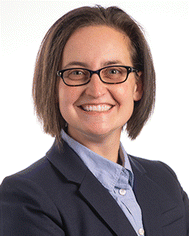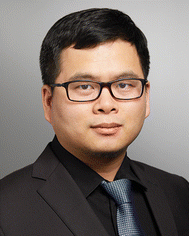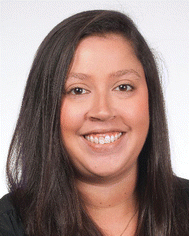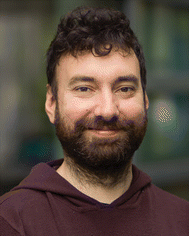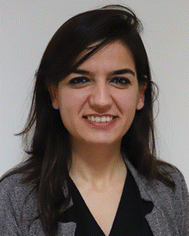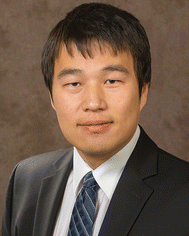Contributors to our Emerging Investigators issue
This Profile article offers a brief insight into some of the researchers who have contributed to this themed issue on the emerging investigators in the -omics research community and the great work that is being done by them. We would like to congratulate them and their teams on their achievements to date and hope they have continued success in the future as they continue their careers within the -omics research community.
Stephanie Byrum, PhD is an Associate Professor in the Department of Biochemistry and Molecular Biology at the University of Arkansas for Medical Sciences. Dr Byrum is also the Director of Bioinformatics for the IDeA National Resource for Quantitative Proteomics. She received her PhD in Bioinformatics via the joint UAMS/UALR Bioinformatics program in Little Rock, AR in 2009 with a focus on proteomics analysis. Dr Byrum conducted her postdoctoral research in the laboratory of Dr Alan Tackett, where she developed the ChAP-MS technology, which provided the first-ever method to purify a single genomic locus for proteomic identification of bound proteins and histone post-translational modifications. Her current research interests include developing bioinformatics workflows for quantitative proteomics, proteogenomics, meta-proteomics, and multi-omics data integration.
Her contribution to the 2022 Molomics Emerging Investigators collection can be read at https://doi.org/10.1039/D1MO00117E.
Stephanie M. Cologna is an Associate Professor of Chemistry at the University of Illinois Chicago (UIC). She received her BS in Chemistry from the University of Arizona followed by doctoral studies at Texas A&M University under the mentorship of David H. Russell. Dr Cologna carried out post-doctoral training at the Eunice Kennedy Shriver National Institute of Child Health and Human Development, National Institutes of Health. In 2015, Stephanie began her independent career at UIC. Her research program is focused on integrating mass spectrometry-based proteomics and lipidomics to understand neurodegeneration. A significant effort in her laboratory is focused on the fatal lysosomal storage disorder, Niemann-Pick Type C.
Her contribution to the 2022 Molomics Emerging Investigators collection can be read at https://doi.org/10.1039/D2MO00004K.
Ralph E. Kleiner obtained his AB from Princeton University (2005) where he performed research with Prof. Michael Hecht, and his PhD in Chemistry (2011) under Prof. David Liu at Harvard University. Kleiner was a postdoctoral fellow with Prof. Tarun Kapoor at The Rockefeller University and in 2016, he became Assistant Professor of Chemistry and Associated Faculty in Molecular Biology at Princeton University. His group develops chemical probes to study RNA biology, including RNA metabolism, structure, and post-transcriptional modifications. He is a recipient of a Sidney Kimmel Foundation Scholar Award, an Alfred P. Sloan Foundation Research Fellowship, and the NSF CAREER award.
His contribution to the 2022 Molomics Emerging Investigators collection can be read at https://doi.org/10.1039/D1MO00334H.
Yansheng Liu is an Assistant Professor in the Department of Pharmacology at Yale University School of Medicine. He received a PhD in Biomedical Sciences at the Chinese Academy of Sciences in 2011. He then completed a 6.5 year post-doctoral training in the laboratory of Dr Ruedi Aebersold at ETH Zurich, Switzerland. In December 2017, he joined the faculty at the Yale Cancer Biology Institute and the Department of Pharmacology at Yale. Dr Liu has co-authored >50 publications with a total of >4000 citations. His research group at Yale aims to contribute to the development of multiplexed, high-throughput data-independent acquisition mass spectrometry techniques and other proteomic methods, as well as their applications in protein turnover, cancer aneuploidy, and cancer signaling transduction.
His contribution to the 2022 Molomics Emerging Investigators collection can be read at https://doi.org/10.1039/D0MO00188K.
Dr Laura Sanchez pursued a PhD in Chemistry at the University of California, Santa Cruz (UCSC), and was a NIH K12 IRACDA postdoctoral fellow at UC San Diego. She started her independent career at the University of Illinois at Chicago in the Department of Pharmaceutical Sciences. Recently, the Sanchez Lab relocated back to UCSC. Her team specializes in using and adapting imaging mass spectrometry and tandem mass spectrometry for small molecule analyses in complex systems.
Her contribution to the 2022 Molomics Emerging Investigators collection can be read at https://doi.org/10.1039/D1MO00074H.
Simone Sidoli was born in 1985 in Parma (Italy), where he received his Bachelor’s and Master’s in Biotechnology. He moved to the University of Southern Denmark (Odense, DK) for his PhD, joining the Protein Research Group under the supervision of Dr Ole N. Jensen. In 2014, he joined the laboratory of Dr Benjamin Garcia at the Epigenetics Institute of the University of Pennsylvania (Philadelphia, USA). Since 2019, he has been an Assistant Professor in the Department of Biochemistry at the Albert Einstein College of Medicine (New York, USA) and Scientific Director of the Einstein Proteomics Core. His lab develops and applies new quantitative methods to define the state and dynamics of chromatin utilizing innovative 3D cell models to reduce the necessity of animal testing.
His contribution to the 2022 Molomics Emerging Investigators collection can be read at https://doi.org/10.1039/D0MO00087F.
Nurcan Tuncbag
Nurcan Tuncbag was born in Turkey, in 1982. Currently, she is an associate professor at Koç University jointly in the Department of Chemical and Biological Engineering and School of Medicine. She received her PhD in Computational Sciences and Engineering from Koç University in 2010, and further worked as a postdoctoral researcher in Biological Engineering at Massachusetts Institute of Technology between 2010 and 2014. She was a faculty member at Middle East Technical University between 2014 and 2021. Her current research interests are computational systems biology, network-based medicine, network modeling, multi-omic data integration, single-cell and bulk omic data analysis, and discovery of latent cancer driver mutations. She continues her research on how the interaction networks between proteins and genes are altered in diseases by using multi-omic data integration and network modeling techniques
Her contribution to the 2022 Molomics Emerging Investigators collection can be read at https://doi.org/10.1039/D1MO00158B
Jiangjiang (Chris) Zhu is an Assistant Professor of Human Nutrition at The Ohio State University and James Comprehensive Cancer Center. His research focuses on the development of mass spectrometry-based metabolomics techniques and the applications of metabolomics in disease diagnosis, monitoring, and mechanistic investigations. His lab also has strong interests in human gut microbial metabolism and is working on developing both in vitro and in vivo models to study gut microbial metabolic functions, and their impact on human health.
His contribution to the 2022 Molomics Emerging Investigators collection can be read at https://doi.org/10.1039/D1MO00005E.
| This journal is © The Royal Society of Chemistry 2022 |

